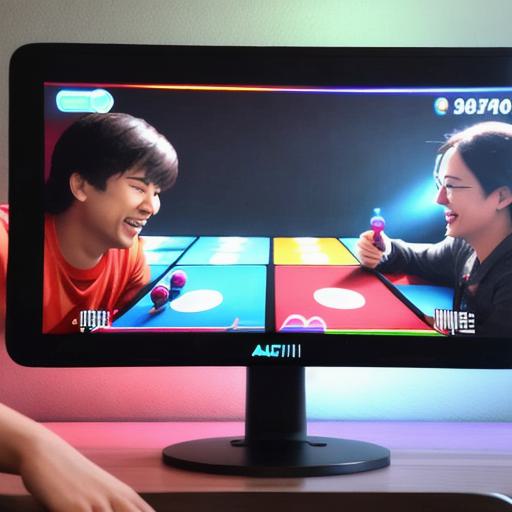Mobile games have revolutionized the way we entertain ourselves, offering a vast array of experiences that cater to various interests and preferences. In this discourse, we will delve into the primary purposes of mobile games and examine their impact on users’ entertainment and engagement levels.

**Purpose 1: On-the-go Entertainment**
Mobile games are designed to provide instant gratification and uninterrupted fun whenever and wherever you are. These games come in various genres, from casual puzzle games like Candy Crush to more complex role-playing games like Fortnite, ensuring there is something for everyone. With the convenience of being accessible through smartphones, users can easily pick up their devices and engage in a game, making mobile games an excellent choice for on-the-go entertainment.

**Purpose 2: Social Interaction**
Mobile games also serve as social platforms that bring people together, fostering friendships and connections. Many multiplayer games like Clash of Clans and Pokemon Go encourage collaboration, competition, and communication between players. Furthermore, the ability to connect with friends through in-game chats or online forums adds an extra layer of engagement, making mobile games a valuable tool for social interaction.
**Purpose 3: Learning and Education**
Mobile games can also be used as educational tools to help users learn new skills or expand their knowledge base. Games like Lumosity offer brain training exercises, while educational apps like Duolingo provide language learning opportunities. By making learning fun and interactive, these games increase user engagement levels and encourage lifelong learning.
**Impact on Entertainment: Engaging Experiences**
Mobile games offer rich, immersive experiences that engage users in ways traditional media cannot. The use of stunning graphics, captivating sound effects, and interactive elements like virtual currencies and achievements create a sense of investment and commitment to the game. Moreover, mobile games often include frequent updates and new content, ensuring that users are always coming back for more.
**Impact on Engagement: Personalized Experience**
Mobile games provide users with a personalized gaming experience by allowing them to customize their avatars, settings, and preferences. This level of customization increases user engagement by fostering a sense of ownership and pride in the game. Additionally, mobile games often use adaptive algorithms that adjust gameplay based on user behavior, ensuring a tailored experience for each individual player.
**Summary: The Future of Mobile Gaming**
As technology continues to evolve, mobile games will undoubtedly become even more sophisticated and engaging. By focusing on providing unique purposes such as on-the-go entertainment, social interaction, learning opportunities, and personalized experiences, developers can create games that captivate users’ attention and keep them coming back for more. The future of mobile gaming is exciting, and we look forward to seeing what innovations lie ahead.
